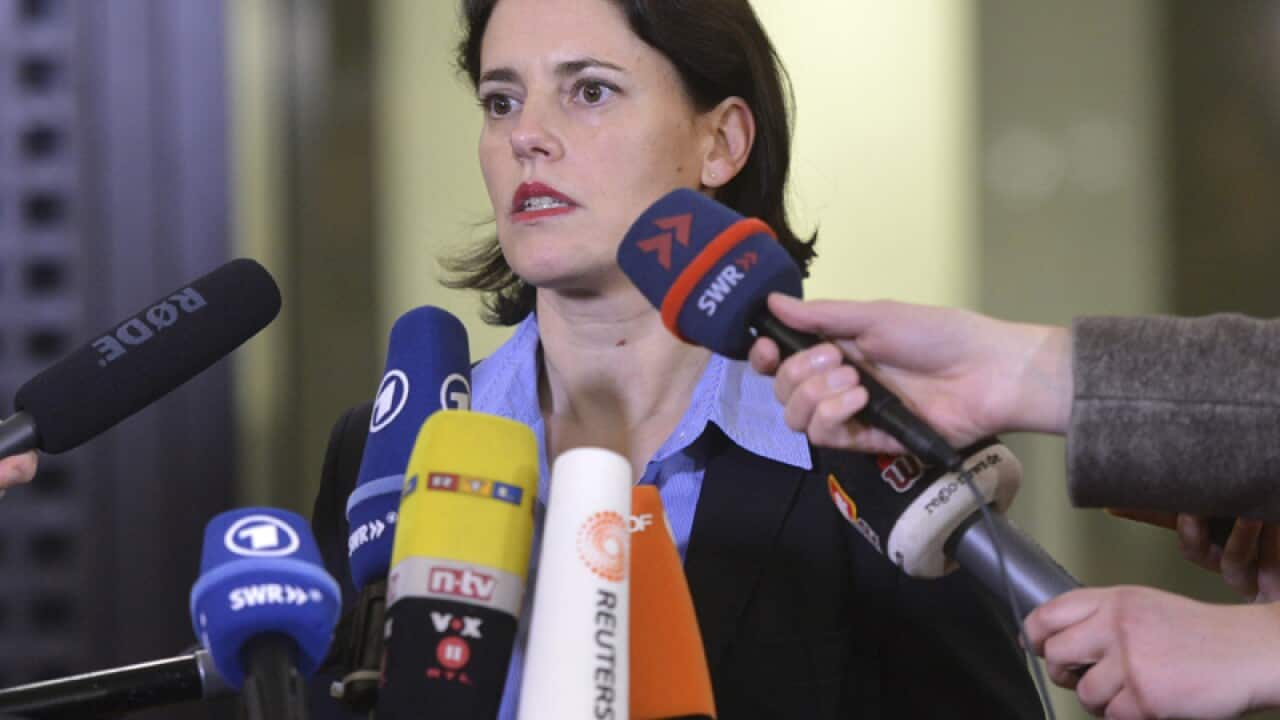A hunt is under way across Europe for Anis Amri, 24, as Germany reels from its worst attack in decades.
"We can report today that we have new information that the suspect is with high probability really the perpetrator," Interior Minister Thomas de Maiziere told reporters on Thursday.
"In the cab, in the driving cabin, fingerprints were found and there is additional evidence that supports this," he said.
Frauke Koehler, a spokeswoman for the federal prosecutor's office, told reporters: "At this point in the investigation, we assume Anis Amri drove the truck."
Related reading

Berlin attack suspect's family in shock
Police had carried out searches across Germany on Thursday but made no arrests, she said.
A video clip from a car-mounted dashcam obtained exclusively by Reuters appears to show the truck driving into the market at speed, immediately after which people run away from the scene.
Chancellor Angela Merkel, facing demands to take a much tougher line on immigration and security, said she hoped the perpetrator would be arrested soon.
Islamic State has claimed responsibility for the attack, in which the truck mowed through a crowd of people and bulldozed wooden huts selling Christmas gifts and snacks beside a famous church in west Berlin.
One of the 12 dead was the Polish driver from whom the truck had been hijacked. His body, stabbed and shot, was found in the cab.
In Tunisia, two of Amri's brothers, Walid and Abdelkader, said they feared the failed asylum-seeker may have been radicalised by radical Islamists while he spent almost four years behind bars in Italy.
"He doesn't represent us or our family," Abdelkader told Sky News Arabia. "He went into prison with one mentality and when he came out he had a totally different mentality."
The suspected involvement of a migrant - one of more than a million allowed into Germany in the past two years - has intensified political pressure on Merkel, who plans to seek a fourth term in elections next year.
Armin Schuster of her Christian Democratic party told broadcaster NDR: "We need to send the signal: Only set off for Germany if you have a reason for asylum."
Germany had until now been spared the kind of mass-casualty militant attacks that have hit France, Spain and Britain in recent years. No attack on German soil has claimed so many lives since 1980, when 13 people including the suspected bomber, a member of a neo-Nazi group, were killed in an explosion at a Munich beer festival.
Market reopens
Ringed by concrete bollards, the Berlin market reopened on Thursday, with candles, flowers and flags laid amid the small festive huts in tribute to those killed.
Bild newspaper cited a counter-terrorism investigator as saying it was clear last spring that Amri was looking for accomplices for an attack and was interested in weapons.
The paper said preliminary proceedings had been opened against him in March based on information he was planning a robbery to get money to buy automatic weapons and "possibly carry out an attack".
In mid-2016, he spoke to two Islamic State fighters and Tunisian authorities listened in on their conversation before informing German authorities. Amri also offered himself as a suicide attacker on known Islamist chat sites, Bild said.
Police started looking for him after finding an identity document under the driver's seat of the truck. Broadcaster rbb said the perpetrator lost both his wallet and mobile phone while running away from the attack site.
The attack has heightened concerns across Europe in days before Christmas. In France, target of three major attacks in the last two years, security around festive markets was strengthened with concrete barriers, and troops were posted at some churches.
The Italian Foreign Ministry said an Italian woman named Fabrizia Di Lorenzo was among the Berlin victims, and the Israeli Foreign Ministry said an Israeli woman called Dalia Elyakim had been identified among the dead.






